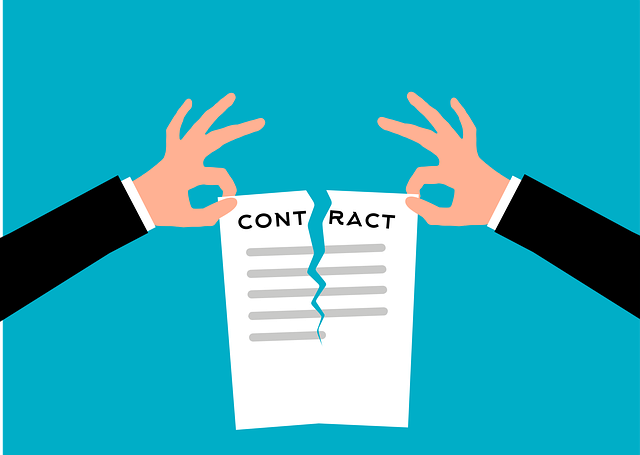When a third party (‘A’) intentionally and knowingly induces one of the contracting parties (‘B’) to breach a contract that ‘B’ has with the other party (‘C’), this is considered ‘inducing a breach of contract’. To have the capacity to file a claim for damages against ‘A’, ‘C’ must additionally establish the following:
‘A’ possessed knowledge (or negligently “turned a blind eye” to the possibility) that the inducement would cause ‘B’ to breach the contract with ‘C’;
‘A’ had the intention of persuading ‘B’ to breach the contract, regardless of whether the breach was merely a prelude to ‘A’ accomplishing its ultimate objective; and
Due to the inducement provided by ‘A’, ‘B’ has in fact breached the contractual agreement between ‘B’ and ‘C’ by causing loss to ‘C’. This relates to whether or not ‘A’ deliberately caused the loss.
In this article, Inducing Breach Of Contract, we take a look at the mechanism involved.
Free Initial Telephone Discussion
For a free initial discussion with a member of our New Enquiries Team, get in touch with us today. We are experienced in dealing with all the legal aspects of inducing breaches of contract, and once instructed, we will review your situation and discuss the options open to you in a clear and approachable manner. Early expert legal assistance can help ensure you are on the best possible footing from the start and also avoid the stress of dealing with these issues on your own. Simply call us on 0345 901 0445 or click here to make a free enquiry and a member of the team will get back to you.
If there is an induced breach of contract, who can the sports club pursue?
In the event of a breach of contract, a team will typically sue the individual or individuals accountable for identifying and negotiating with the player on charges of inducement. This may involve the player’s manager or the team actively pursuing the player.
Although loss or damage can manifest in various ways, the most prevalent in the realm of sports is the cessation of sponsorship or other financial support that is linked to the player’s membership in the team.
Should a team discover that a third party is exerting inducement over one of their players, it may have the ability to petition for and receive an injunction prohibiting the inducement conduct, including against the third party.
However, in situations where the player has left the original team in breach of the terms of their contract, the team may not only have the right to sue the player for contract breach, but also to seek compensation from any third party implicated in the incident for the damages it has incurred.
In order to succeed in a claim for breach of contract by inducement, the team would be required to establish the following:
- A contract existed between the player and the team.
- The third party was aware of the contract and that the player’s performance (or lack thereof) of a specific action would constitute a breach of their agreement. Intentional omission or failure to conduct suitable investigations does not automatically exonerate a party from liability for the consequences of their actions.
- Additionally, the third party must have had the intent to coerce the player into breaching the contract through the execution (or non-execution) of a specific action; and
- The contract breach has resulted in financial loss or harm to the team.
What should you do if you are being accused of being the party doing the inducing?
Don’t use confidential information regarding an agreement that is revealed to you in breach of the contract, even if said information was disclosed without your explicit request. An obvious danger arises when party ‘B’ divulges the intricacies of their buy-out/release clause or offers information in response to your approach.
What should you do if you have suffered the loss?
Consider whether party ‘A’ would have known of the existence (or probable existence) of any contract terms that it induced ‘B’ to breach. The inclusion of confidentiality obligations in the contract could be of great assistance: consider the possibility that ‘A’ acquired and used confidential information provided by ‘B’ in breach of the contract, in exchange for being approached by ‘A’. In addition to showing ‘A’s’ understanding of the pertinent provisions of the agreement, this could support the development of a distinct claim regarding the improper handling of confidential data.
How we can help
We have a proven track record of helping clients deal with the process involved in induced breaches of contract. We will guide you diligently and ensure all checks are carried out swiftly and efficiently and we firmly believe that with the right solicitors by your side, the entire process will seem more manageable and far less daunting. You can read more about the range of sports law services we offer by clicking here: https://blackstonesolicitorsltd.co.uk/sports-law/
How to Contact Our Sports Solicitors
It is important for you to be well informed about the issues and possible implications of dealing with an induced breach of contract claim. However, expert legal support is crucial in terms of ensuring a positive outcome to your case.
To speak to our Sports solicitors today, simply call us on 0345 901 0445, or click here to make a free enquiry. We are well known across the country and can assist wherever you are based. We also have offices based in Cheshire and London.
Disclaimer: This article provides general information only and does not constitute legal advice on any individual circumstances.



